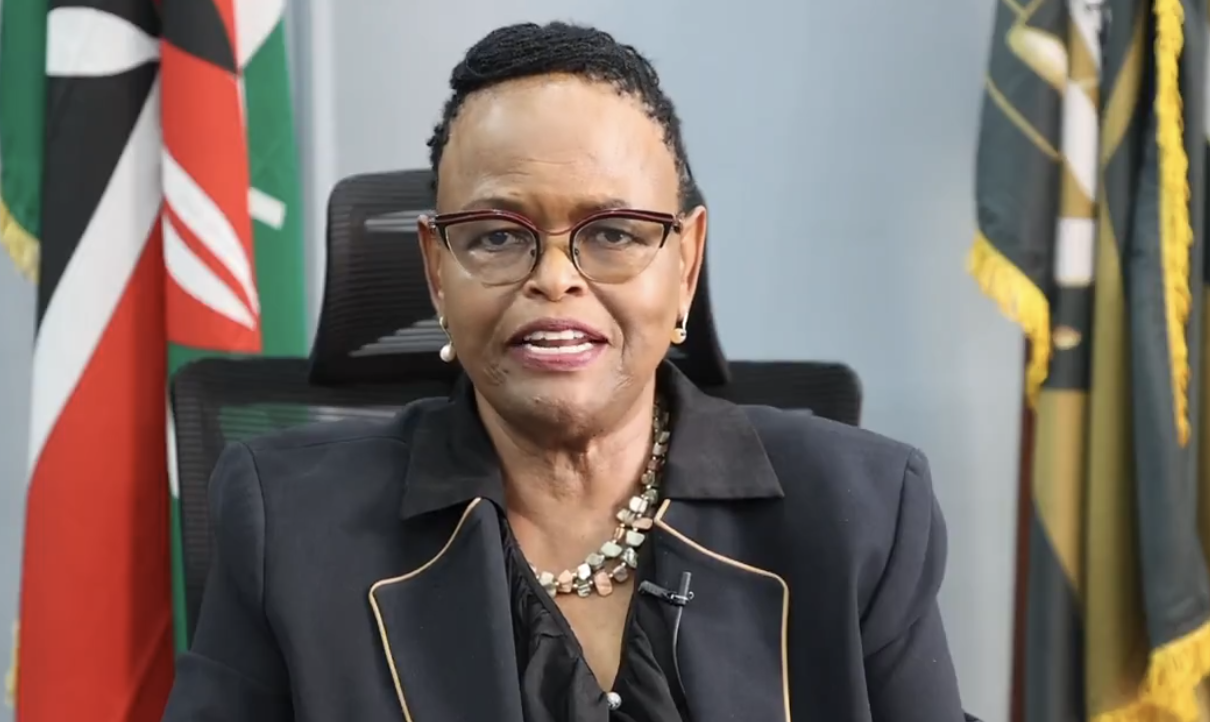 Chief Justice Martha Koome speaks during the opening of the Magistrates and Kadhis colloquium themed ‘Digital Transformation, Technology and the Law’, April 8, 2025. /SCREENGRAB
Chief Justice Martha Koome speaks during the opening of the Magistrates and Kadhis colloquium themed ‘Digital Transformation, Technology and the Law’, April 8, 2025. /SCREENGRABChief Justice Martha Koome has reaffirmed the Judiciary's commitment to integrity and efficiency and called on judicial officers to uphold public trust.
Speaking on Tuesday during the opening of the Magistrates and Kadhis colloquium themed ‘Digital Transformation, Technology and the Law’, Koome highlighted key challenges such as case delays, frequent adjournments, and the over-listing of matters in a single day.
“We, as judicial officers and judges, find ourselves on trial - under public examination for how we manage cases and serve court users, and regrettably, for renewed allegations of corruption in some court stations,” she said.
Koome noted that listing up to 50 cases a day is unfair, as this leads to delays and frustration on the part of litigants.
“As judicial officers, we must ensure that we only list a manageable number of cases each day, guided by our capacity to hear and conclude them.”
On corruption, Koome issued a strong warning: “I want to state once again, unequivocally: The Judiciary is a corruption-free zone. We have adopted a zero-tolerance policy to corruption, and we are determined to enforce it without fear or favour.”
To strengthen accountability, Koome said the Judiciary is establishing Court Integrity Users Committees in all court stations.
“The new Court Integrity Committees offer us a means to identify and confront such misconduct collectively,” she said.
The CJ said the Judiciary is also shifting from a complaints-based anti-corruption model to an intelligence-driven approach involving the Ethics and Anti-Corruption Commission (EACC) and the National Intelligence Service (NIS).
She noted that in the past, the anti-corruption approach relied heavily on complaints lodged with the Judicial Service Commission and the Office of the Judiciary Ombudsman, but this had limitations.
On the digital front, Koome emphasised the transformative power of technology, including e-filing, virtual courts, and a national transcription system.
She was, however, quick to point out that the innovations were not a magic bullet of sorts, stating that the effectiveness of digital systems depends on how judicial officers embrace and use them.
“These innovations are not simply technological upgrades; they are fundamental tools for enhancing efficiency, transparency, and user satisfaction in our courts.”
Koome called on the officers to lead in adopting and making use of the digital tools and nurturing a culture of innovation and continuous improvement.
Justice Smokin Wanjala of the Kenya Judiciary Academy echoed her sentiments, describing the Judiciary as being “at the threshold of a paradigm shift,” driven by emerging technologies like AI, blockchain, and big data.
Wanjala said the forces demand a Judiciary that is not only adaptive but also anticipatory.
Chief Registrar Winfridah Mokaya reinforced the message on ethics: “Integrity… is not merely about the absence of corruption—it is about being honest, impartial, and accountable in all that we do.”

![[PHOTOS] Kindiki inspects works at regional centre in Kwale](/_next/image?url=https%3A%2F%2Fcdn.radioafrica.digital%2Fimage%2F2025%2F04%2Fc68aa00b-39bc-4214-bafe-80e8e38b1e60.jpg&w=3840&q=100)









